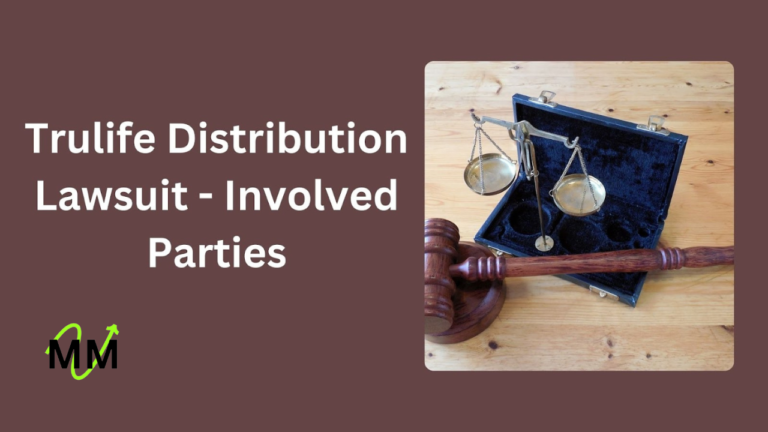Exploring the Smoothstack Lawsuit and Industry Implications

The technology and staffing industry has witnessed a significant shift in recent years, with many companies emerging to bridge the gap between skilled professionals and employers. Among these companies is Smoothstack, a firm that has gained attention for its unique business model and the controversies surrounding it. This article delves into the intricacies of the Smoothstack lawsuit, exploring the company’s background, the nature of the allegations, the legal proceedings, and the broader implications for the industry.
Background of Smoothstack
Smoothstack is a technology staffing and training company specializing in hiring, training, and placing IT professionals with various client companies. Founded to address the talent gap in the technology sector, Smoothstack’s business model involves recruiting individuals, providing them with intensive training programs, and placing them in job positions with partner companies. This model is intended to benefit both the trainees, who gain valuable skills and job placements, and the client companies, which receive trained professionals ready to contribute from day one.
The Allegations
The lawsuit against Smoothstack centers around several vital allegations made by former trainees and employees. One of the primary complaints is that Smoothstack’s training program and subsequent job placements involve unfair labour practices. Critics argue that the company places trainees in roles that require long hours without fair compensation. There are also allegations that Smoothstack misrepresents the terms of employment and the nature of the training programs to potential recruits, leading to dissatisfaction and legal action from those who feel deceived.
Legal Proceedings
The legal proceedings in the Smoothstack lawsuit have been complex and multi-faceted. Plaintiffs have brought forth claims under various labour laws, alleging violations such as unpaid wages, misclassification of employees, and breach of contract. On the other hand, the company has defended its practices by highlighting the benefits of its training programs and the opportunities they provide for career advancement. As the case progresses, both sides have presented evidence and testimonies to support their positions, making it a contentious and closely watched legal battle.
Impact on Trainees and Employees
The lawsuit has significantly impacted current and former Smoothstack trainees and employees. Many have voiced their frustrations and concerns, with some claiming that the experience has left them disillusioned with the tech industry. The legal battle has also brought to light the challenges faced by individuals seeking to break into the technology sector, particularly those who rely on staffing and training companies to secure employment. For many, the lawsuit has underscored the importance of understanding the terms of employment and seeking transparency from employers.
Read More
Industry Implications
The Smoothstack lawsuit has broader implications for the technology staffing and training industry. It has sparked discussions about the ethics and legality of business models that involve intensive training programs and subsequent job placements. Companies like Smoothstack are now under increased scrutiny, with regulators and industry observers calling for greater transparency and fairness in their practices. The lawsuit has also prompted re-evaluating labour laws and protections for individuals in training and placement programs, potentially leading to regulatory changes to safeguard workers’ rights.
Responses and Reactions
Reactions to the Smoothstack lawsuit have been varied. Some industry insiders and analysts view the legal action as a necessary step to hold companies accountable for their treatment of trainees and employees. They argue that the lawsuit could lead to positive changes in the industry, promoting fairer labour practices and better protections for workers. Others, however, see the lawsuit as potentially damaging to the reputation of staffing and training companies, which play a crucial role in addressing the talent shortage in the technology sector. They worry that increased scrutiny and legal challenges could deter companies from investing in training programs, ultimately harming the industry’s ability to develop skilled professionals.
Smoothstack’s Defense
In response to the lawsuit, Smoothstack has mounted a robust defence, emphasizing the value of its training programs and the opportunities they provide. The company argues that its business model is designed to help individuals launch successful technological careers, offering training and job placements that might not otherwise be accessible. Smoothstack maintains that it operates within the bounds of the law and that its practices are ethical and beneficial to trainees and employees. The company has also highlighted success stories of individuals who have completed the program and achieved significant career advancement.
Future Outlook
The future outlook for Smoothstack and similar companies remains uncertain as the lawsuit progresses. If the plaintiffs succeed in their claims, it could result in significant financial penalties for Smoothstack and potentially force the company to alter its business practices. This, in turn, could impact the availability of training and job placement programs for aspiring tech professionals. On the other hand, a favourable outcome for Smoothstack could reaffirm the legitimacy of its business model and encourage other companies to continue investing in similar programs. Regardless of the result, the lawsuit will likely impact the technology staffing and training industry.
Read More
Conclusion
The Smoothstack lawsuit is a crucial case study in the intersection of labour law, business practices, and the evolving technological landscape. As the legal proceedings unfold, the case continues to shed light on the complexities and challenges faced by companies and individuals in the tech sector. While the outcome remains to be seen, the lawsuit has already prompted essential conversations about fairness, transparency, and worker protections in training and staffing programs. For aspiring tech professionals, industry stakeholders, and legal observers alike, the Smoothstack lawsuit represents a significant and closely watched development in the ongoing evolution of the technology workforce.






